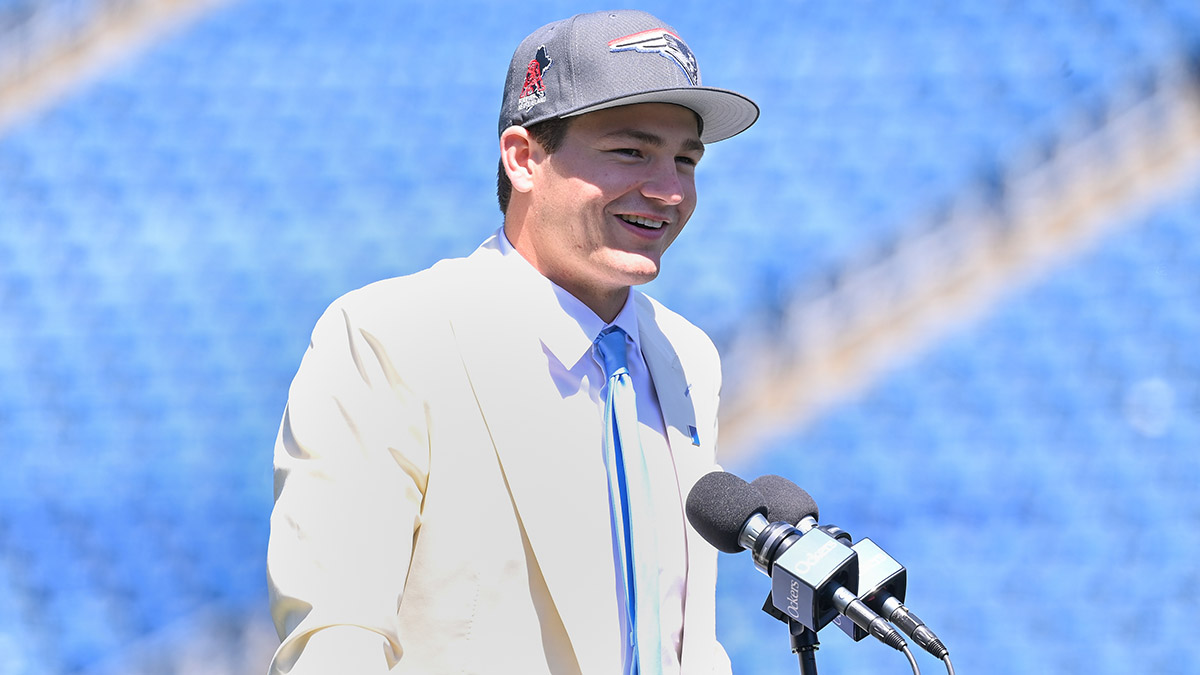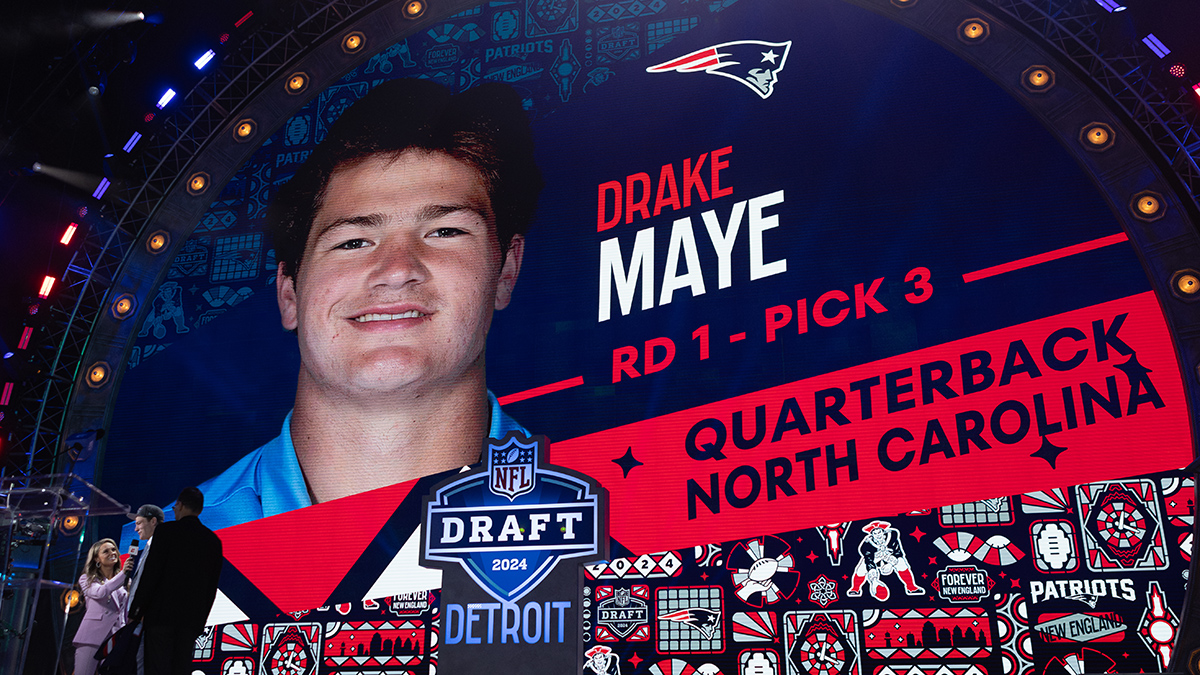Here we are again at the edge of the volcano. A Patriots player we thought irreplaceable is nearing replacement.
Why are we here? The usual. Age, money, future performance projections, a combination of all three. A legend is poised to be nudged over the edge. After that? Bill Belichick will return to business.
If history is our guide, the loss won’t stop the onward march of the Patriots dynasty. We won't know for a few years if the possible departure of Tom Brady will yield a different result. But there’s no room for sacred cows in Belichick’s empire. Not even sacred GOATs.
Belichick has had the mettle to move on from a long list of players — from very good to legendary — and stoically taken the ensuing hits. Every instance — we will look at 18 of them in the coming days — is rich in backstory. What happened? Why did it happen? And what did the player — a few years removed from the move — have to say about his ex-coach?
As Brady approaches free agency, these stories are a reminder we've been here before. Many times. It's just business.
* * * * *
Our first look back predates the Patriots and the rise of Bill Belichick as the greatest coach in NFL history. On November 8, 1993, Belichick — then the head coach of the Cleveland Browns — released quarterback Bernie Kosar.
New England Patriots
Sports Illustrated dispatched reporter Ned Zeman to Cleveland. His article was titled: "The Last Straw." Subhead? "Browns’ cold-fish coach Bill Belichick is unpopular in Cleveland where he did the unthinkable — he cut Bernie Kosar."
Zeman wrote:
On Nov. 8 the Browns' coach, Bill Belichick, went and did the weirdest thing of all: With (Vinny) Testaverde out indefinitely because of a separated shoulder, Belichick unceremoniously waived quarterback Bernie Kosar, the most revered Cleveland player since Jim Brown and a special favorite of the fans because of his Ohio roots. Kosar's departure left the Browns offense in the green hands of a fellow named Todd Philcox, heretofore known around town as the Guy with the Clipboard. To the Browns faithful, particularly those given to public displays of bone waving, the move took its place beside the Rocky Colavito-for-Harvey Kuenn trade, the Paul Brown firing and the Paul Warfield trade as one of the darkest moments in Cleveland sports history.
In a press conference announcing the move, Belichick said, “Basically, it came down to his production and a diminishing of his physical skills.”
It was true. Kosar couldn’t move and his arm was weak. More than that, though, he’d gone rogue. Become insubordinate.
Here’s what led to that. Earlier in the season, Belichick ordered Kosar to stop changing plays at the line. Then Kosar was benched in favor of Vinny Testaverde. When Testaverde separated his shoulder, Kosar was back in. And once back, he decided to do things his way in a game against Denver.
In the Los Angeles Times, Bill Plaschke wrote,
Before the game, after studying the film, Kosar pointed out that the Broncos could probably be kept off balance by throwing the ball on second and third downs. Belichick did not agree with that strategy, but in the second half, Kosar ignored him and threw those passes anyway. The Browns, who trailed 16-0, scored twice and missed a field goal in five possessions with Kosar calling the plays. He was sacked six times. They eventually lost, 29-14. And less than 24 hours later, Kosar lost his job.
There may not have been a more raucous and bloodthirsty fanbase in the NFL in the early '90s than the one in Cleveland. In the late '80s, the Browns made it to the brink of the Super Bowl three times in four seasons and lost.
Kosar, an Ohio native, was their god. And Belichick, in his third season as head coach, was backed into a corner.
The Browns had gone 13-19 in Belichick’s first two seasons. When Kosar took over for the injured Testaverde, they were 5-2. For the still boyish-looking Belichick, this was a test. With no place else to turn, he would bend the knee to Kosar and let the player win. Don’t rock the boat. Cede authority. Or he could take a stand.
He chose the latter, firing Kosar and putting the team temporarily in the hands of Todd Philcox, who’d thrown 12 passes in his three-year career before that.
Four days after Kosar’s release, the Browns lost to Seattle 22-5. Philcox was 9 for 20 for 85 yards with two picks. He’d throw another four picks the following week against the Oilers.
Cleveland went 2-6 after releasing Kosar. Kosar went to Dallas and got a Super Bowl ring. Everybody had a good laugh at the dour, young wunderkind Belichick and speculated about his expiration date.
The next year, though, Cleveland gained traction. They went 11-5 and beat the Patriots in the Wild Card Round of the 1994 Playoffs. They then started the 1995 season 3-1 before owner Art Modell announced he was moving the team to Baltimore. They nosedived, Belichick was out and a chaotic five seasons had ended.
But in the Kosar situation, Belichick got confirmation on a number of things. That the coach can’t turtle when players are insubordinate. That the “chain of command” has to be understood. That something that painful in the short term may have to be done for the long-term good of the team. Finally, that Belichick could invite chaos, change, controversy and criticism and not just survive but flourish.
In 2012, I ran into Kosar at the NFL Combine. I asked him about Belichick. It was like I’d flipped a switch.
“I remember when you wrote the article after the Jets thing (when Belichick resigned as HC of the NYJ and came to New England)," Kosar began. "You guys were going on the 'Crush Bill' campaign and I told you how great he was as a coach. He called me after that and said, 'Thanks for going to bat for me.'
“Me and him, we're great,” said Kosar.
Kosar then said, basically, that Belichick was right. Kosar’s skills were diminishing.
“When we start getting hurt in our 30s, we just keep getting hurt,” he said. “We just do. Stuff just happens, And to be in the league but not be able to perform at the level I wanted to was tough. But Bill is a bottom-line guy and how can you ever question that? I'm a big disciple of the way he does things.”
(Next up: A new broom sweeps clean for Bruce and Ben)


